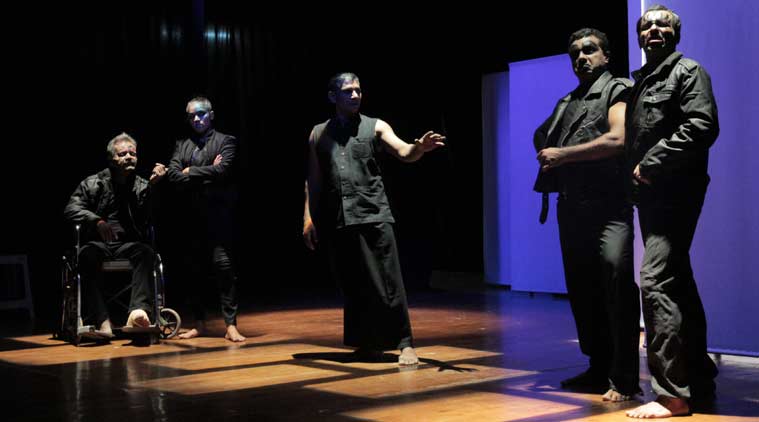Click here to follow Screen Digital on YouTube and stay updated with the latest from the world of cinema.

The 10 heads of Ravana symbolise the demon king’s depth of knowledge, wisdom and learning in the Ramayana. In The Tenth Head, a production by Pondicherry-based Adishakti, one head decides to disagree and differ with the rest. Writer-actor Vinay Kumar (45), a student of theatre person Veenapani Chawla who died a few months ago, speaks about the challenges of ‘unbelonging’:
When and how did you develop the idea of The Tenth Head?
A few years ago, Veenapani Chawla conceptualised the Ramayana Festival, to explore various versions of it from across South East Asia and bring them together. She encouraged actors at Adishakti to write and direct plays, and this is how Nidrawatham, Hanuman Ramayana and The Tenth Head were created. I scripted The Tenth Head but it has been directed by her. The play, which is 70-minutes long, premiered a year ago and addresses the issue of individualism in a collective.
Is the play your interpretation of the Ramayana?
Here, the tenth head of Ravana refuses to conform and the play is essentially a dialogue between the nine heads and the tenth head. This is not a linear storytelling of the epic, it takes a different trajectory. For instance, there is no Ram in the picture; the golden deer is a metaphor, and not just a deer. We question what happens when this tenth head meets Sita. When we create a play, we can swim from one time to another, so there is no specific time frame, just an idea. We move from Ravana’s Pushpak Viman to Icarus and then to modern warfare. The other aspect is how, in several artistic impressions of Ravana, there is no equitable distribution of the heads. We have taken off from that fundamental idea.
Which head are you?
There are seven actors in The Tenth Head and I play the tenth head. We have used animation and projections, and technology to reach a detached space.
How has this production evolved in one year?
This is the second round of this play’s staging, and we have performed it in Mumbai, Chennai, Bangalore and Pondicherry earlier. Veenapani would always go through the feedback of the audience and the theatre community and then dismantle the play and change its course. She did the same with The Tenth Head. In fact, the day she passed away was the day we had to begin rehearsals. To honour her, we began rehearsing two days after her death. After performing in Delhi, we go back to conduct our annual workshops and then tour with it in May.
What is the future of Adishakti after her passing away?
Veenapani understood early that the only way an institution could survive was by training first, second and third rank of leaders, both in the creative and administrative fields. She encouraged us actors to write and direct, so Adishakti is running. She struggled for 30 years so that we could relish the fruits. Veenapani has created an infrastructure. There is a performing space, a dining area, a library and a guest house. We live on our own revenue, though it’s touch and go.
Tell us a bit about your journey.
I was part of a Leftist repertory company in school and after that my parents decided to send me to study drama. I wanted to understand my roots, so I took up martial arts where I met Veenapani, some 20 years ago. I was looking for a guru and she was looking for a student.
The play will be staged at LTG Auditorium today at 3 pm.
Click here to follow Screen Digital on YouTube and stay updated with the latest from the world of cinema.